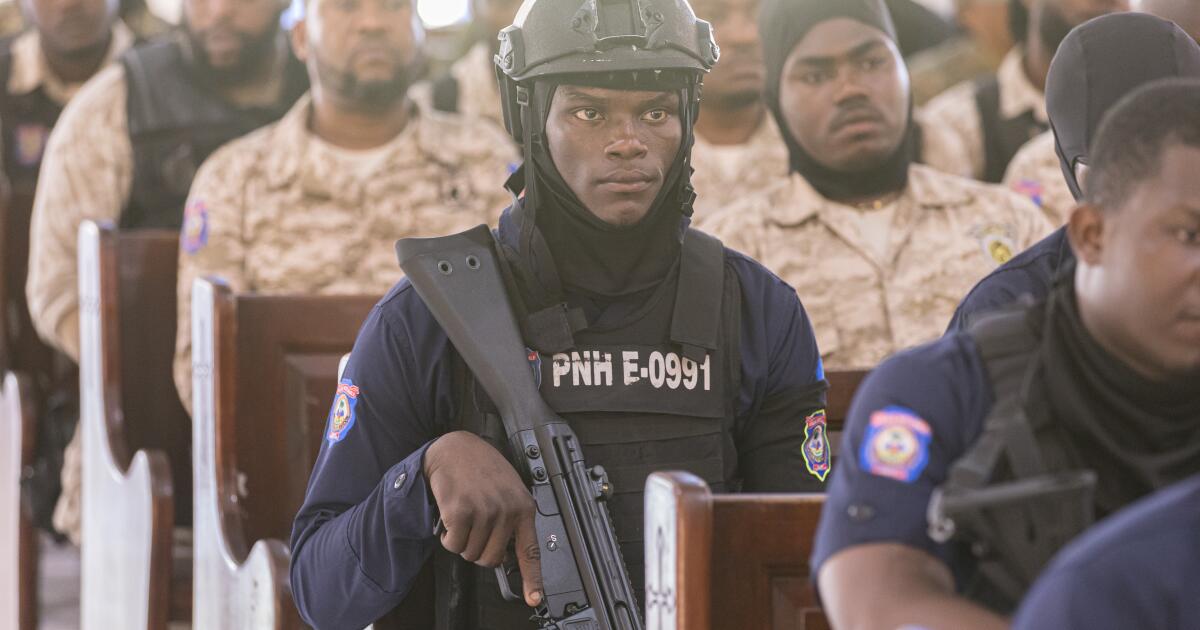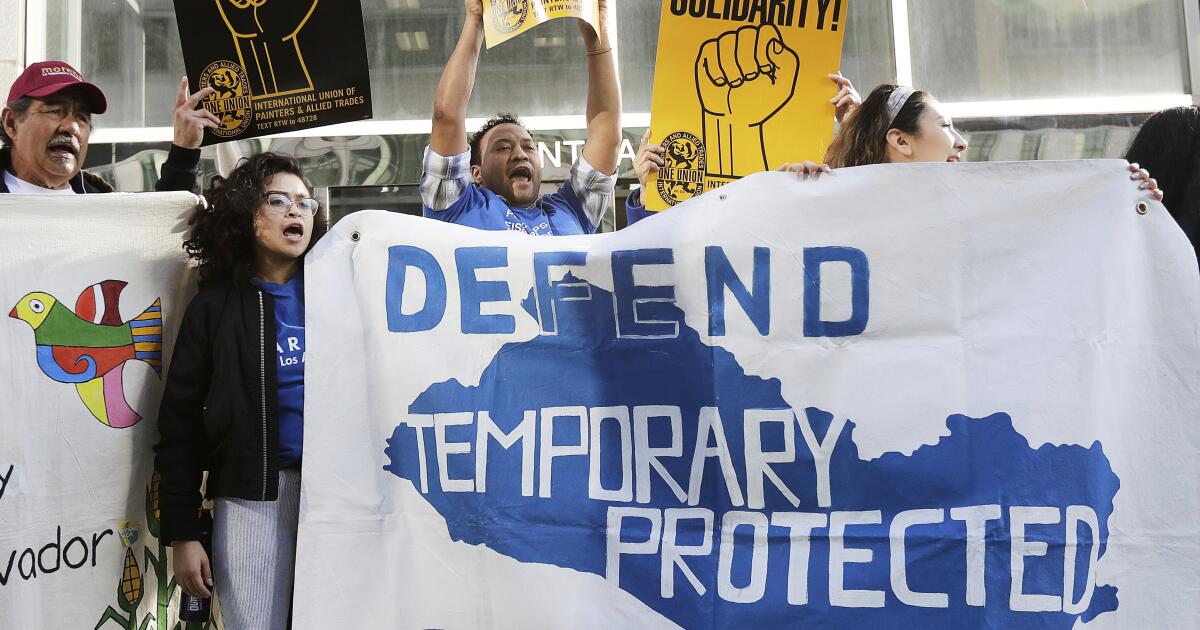Contributor: If Haiti has become more violent, why end Haitians’ temporary protected status in the U.S.?
Homeland Security Secretary Kristi Noem announced last month that temporary protected status for about 5,000 Haitians would end Sept. 2, five months earlier than planned. The Trump administration has cited flawed and contradictory assessments of conditions in Haiti — which, make no mistake, remains unsafe.
Although a U.S. district court halted the action — at least temporarily — and reinstated the original termination date of Feb. 3, the administration is likely to challenge the ruling. The outcome of such a challenge could hinge on whether the courts receive and believe an accurate representation of current events in Haiti.
The administration asserts that “overall, country conditions have improved to the point where Haitians can return home in safety.” Nothing could be further from the truth. But few outsiders are entering and leaving the country lately, so the truth can be hard to ascertain.
In late April and early May, as a researcher for Human Rights Watch, I traveled to the northern city of Cap-Haïtien. For the first time in the several years I have been working in Haiti, violence kept me from reaching the capital, Port-au-Prince, where the airport remains under a Federal Aviation Administration ban since November when gangs shot Spirit, JetBlue and American Airlines passenger jets in flight.
In Cap-Haïtien, I spoke with dozens of people who fled the capital and other towns in recent months. Many shared accounts of killings, injuries from stray bullets and gang rapes by criminal group members.
“We were walking toward school when we saw the bandits shooting at houses, at people, at everything that moved,” a 27-year-old woman, a student from Port-au-Prince, told me. “We started to run back, but that’s when [my sister] Guerline fell face down. She was shot in the back of the head, then I saw [my cousin] Alice shot in the chest.” The student crawled under a car, where she hid for hours. She fled the capital in early January.
This rampant violence is precisely the sort of conditions Congress had in mind when it passed the temporary protected status law in 1990. It recognized a gap in protection for situations in which a person might not be able to establish that they have been targeted for persecution on the basis of their beliefs or identity — the standard for permanent asylum claims — but rather when a person’s life is at real risk because of high levels of generalized violence that make it too dangerous for anyone to be returned to the place.
When an administration grants this designation, it does so for a defined period, which can be extended based on conditions in the recipients’ home country. For instance, protected status for people from Somalia was first designated in 1991 and has been extended repeatedly, most recently through March 17, 2026.
Almost 1.3 million people are internally displaced in Haiti. They flee increasing violence by criminal groups that killed more than 5,600 people in 2024 — 23% more than in 2023. Some analysts say the country has the highest homicide rate in the world. Criminal groups control nearly 90% of the capital and have expanded into other places.
Perversely, the Department of Homeland Security publicly concedes this reality, citing in a Federal Register notification “widespread gang violence” as a reason for terminating temporary protected status. The government argues that a “breakdown in governance” makes Haiti unable to control migration, and so a continued designation to protect people from there would not be in the “national interests” of the United States.
Even judging on that criterion alone, revoking the legal status of Haitians in the U.S. is a bad idea. Sending half a million people into Haiti would be highly destabilizing and counter to U.S. interests — not to mention that their lives would be at risk.
The Trump administration has taken no meaningful action to improve Haiti’s situation. The Kenya-led multinational security support mission, authorized by the U.N. Security Council and initially backed by the United States, has been on the ground for a year. Yet because of severe shortages of personnel, resources and funding, it has failed to provide the support the Haitian police desperately need. In late February, U.N. Secretary-General António Guterres recommended steps to strengthen the mission, but the Security Council has yet to act.
The humanitarian situation in Haiti continues to deteriorate. An estimated 6 million people need humanitarian assistance. Nearly 5.7 million face acute hunger.
On June 26, just one day before Homeland Security’s attempt to end Haitians’ protected status prematurely, Deputy Secretary of State Christopher Landau described the ongoing crisis in Haiti as “disheartening.” He said that “public order has all but collapsed” as “Haiti descends into chaos.” Two days earlier, the U.S. Embassy in Haiti issued a security alert urging U.S. citizens in the country to “depart as soon as possible.” These are not indications that “country conditions have improved to the point where Haitians can return home in safety,” as Homeland Security claimed on June 27.
The decision to prematurely end temporary protected status is utterly disconnected from reality. The Trump administration itself has warned that Haiti remains dangerous — and if anything has become more so in recent months. The U.S. government should continue to protect Haitians now living in the United States from being thrown into the brutal violence unfolding in their home country.
Nathalye Cotrino is a senior Americas researcher at Human Rights Watch.

